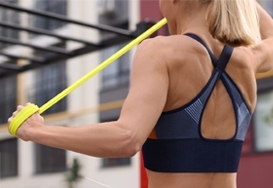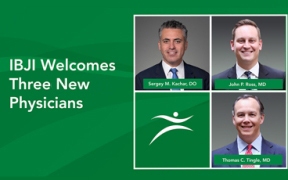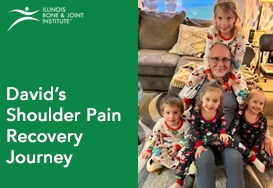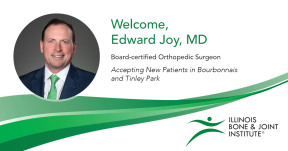If an athlete is suspected of having a concussion, he/she should be immediately removed from all play, whether it be a game or practice. Continuing to participate in physical activity after a concussion can lead to worsening symptoms, increased risk for further injury, and even death.
While risk of injury, including concussion, may never be completely eliminated from youth sports, there are proactive measures that may be taken to help reduce head injury risks,including the following:
- Concussions and head injuries should be taken seriously.
- One of the most important concussion safety measures is being knowledgeable of concussion signs/symptoms and capable of recognizing injury.
Possible signs/symptoms of concussion:
- Headache
- Nausea
- Dizziness
- Visual problems
- Balance problems
- Fatigue
- Lethargy
- Nervousness
- Drowsiness
- Difficulty remembering
- Sleeping more than usual
- Vomiting
- Feeling slowed down
- Confusion
- Sensitivity to light
- Sensitivity to noise
- Numbness/tingling
- Sleeping less than usual
- Difficulty with/slurred speech
- Loss of consciousness
- Feeling mentally foggy
- Irritability
- Difficulty concentrating
- Unequal/dilated pupils
- Sadness
- Feeling more emotional
- Amnesia
- Trouble falling asleep
If there is any suspicion that an athlete may have sustained a head injury or concussion, he or she should be immediately removed from play.
Remember “when in doubt, sit it out”.
- Athletes should wear appropriate and well-fitted equipment for their sport, but keep in mind that there is no equipment or gear currently available that will prevent a concussion.
- Players should be encouraged to use proper sporting techniques, as instructed by coaching staff.
- Athletes should also follow all rules and play with good sportsmanship.
- Lastly, athletes should feel comfortable reporting injury.
If you feel you/your child has suffered a concussion, the IBJI Sports Neurology Team is available for post-injury evaluation and management. To learn more, call our office at 847-682-8463.
*This content is for information only and is not intended to replace the diagnosis, treatment, or medical advice from your treating healthcare professionals. The content does not provide medical advice, does not constitute the practice of medicine or other healthcare professional services, and does not create a doctor-patient relationship. You should not rely on this information as a substitute, nor does it replace professional medical advice, diagnosis, or treatment. If you have concerns or questions, seek the advice of your healthcare professionals. If you think you may have a medical emergency, call your doctor or 911 immediately. Do not rely on electronic communications or communicate through this website for immediate, urgent medical needs. This website is not designed to facilitate medical emergencies. The use of the information is at the reader’s own risk. The links are provided for information and convenience only. We cannot accept responsibility for the sites linked or the information found here. A link does not imply an endorsement of a site.




